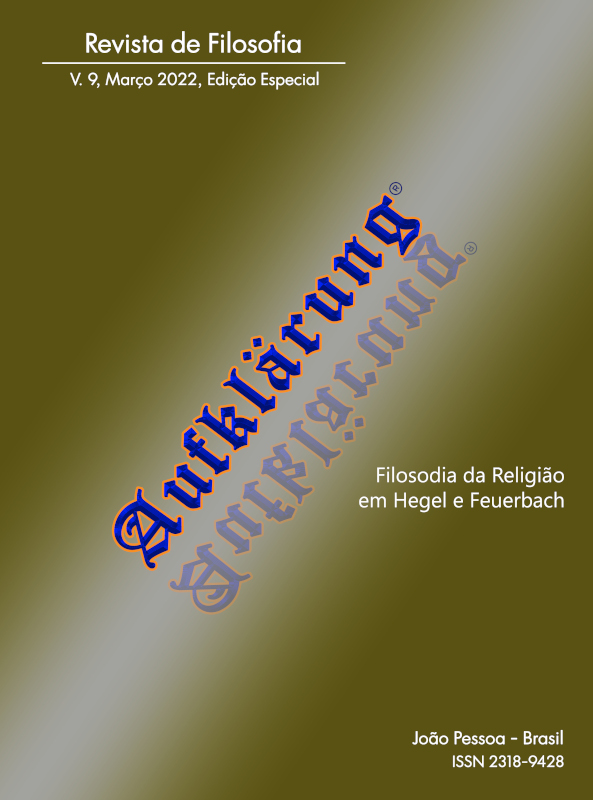Intervention Bioethics and Epistemic Decolonization: The knowledge of the peoples of the Amazon in health care
DOI:
https://doi.org/10.18012/arf.v9iesp.64030Keywords:
Intervention bioethics, Decolonial epistemology, Amazon people knowledge, Ecology of knowledge, Integrative and complementary practicesAbstract
Given the context of colonialism, which insinuates to the colonized peoples that only the knowledge of the north of the globe is valid, as it comes from the scientific method, the knowledge of the original peoples has been supplanted. In the case of indigenous health, in many villages, healing practices using plants and shaman rituals were replaced by medicines, while the knowledge of these peoples about the use of medicinal plants and their rituals was demonized by the advance of evangelical churches in the villages. Therefore, this article is justified by bringing a reflection on the bioethics of intervention, decolonial epistemology and Complementary Integrative Practices as a way to promote the appreciation of the knowledge of the peoples of the Amazon in health care, using as an example the case of the Paiter Suruí, portrayed in the Documentary Ex-Pajé, by director Luiz Bolognesi (2018).
Downloads
References
BOLOGNESI, Luiz (Diretor). Ex-Pajé. Documentário, S.l.: Gullane, 2018. (81 min.), son., color. Legendado.
BRASIL. Lei n. 13.123, de 20 de maio de 2015. Regulamenta o inciso II do § 1º e o § 4º do art. 225 da Constituição Federal, o Artigo 1, a alínea j do Artigo 8, a alínea c do Artigo 10, o Artigo 15 e os §§ 3º e 4º do Artigo 16 da Convenção sobre Diversidade Biológica. Presidência da República. Subchefia para assuntos jurídicos, Brasília, 2015.
BRASIL. Convenção sobre Diversidade Biológica (Organização das Nações Unidas, 1993). Brasília/DF: Ministério do Meio Ambiente, Publicado em 17/11/2020. Disponível em: https://www.gov.br/mma/pt-br/assuntos/biodiversidade/convencao-sobre-diversidade-biologica. Acesso em: 15 ago. 2022.
BRASIL. Ministério da Saúde. Secretaria de Atenção à Saúde. Departamento de Atenção Básica. Política Nacional de Práticas Integrativas e Complementares no SUS - PNPIC-SUS /Ministério da Saúde, Secretaria de Atenção à Saúde, Departamento de Atenção Básica. – Brasília, DF: Ministério da Saúde, 2006. Disponível em: https://bvsms.saude.gov.br/bvs/publicacoes/pnpic.pdf. Acesso em 15 ago. 2022.
FEITOSA, Saulo F.; NASCIMENTO, Wanderson F. A Bioética de Intervenção no contexto do pensamento latino-americano contemporâneo. Revista Bioética, São Paulo, v. 23, n. 2, p. 277-284, 2015.
GARRAFA, Volnei; PORTO, Dora. Bioética, poder e injustiça: por uma ética de intervenção. Mundo Saúde, São Paulo, v. 26, n. 1, p. 6-15, 2002.
GASTAI, Maria L. Os instrumentos para a conservação da biodiversidade. In: BESUNSAN, Nurit (org.) Seria Melhor Ladrilhar? Biodiversidade como, para que, porquê. Brasília: Editora Universidade de Brasília: Instituto Socioambiental, 2002. Disponível em: https://acervo.socioambiental.org/acervo/publicacoes-isa/seria-melhor-mandar-ladrilhar-biodiversidade-como-para-que-por-que. Acesso em: 15 ago. 2022.
GUIMARÃES, Maria B. et al. As práticas integrativas e complementares no campo da saúde: para uma descolonização dos saberes e práticas. Saúde e Sociedade, São Paulo, v.29, n.1, 2020. Disponível em: https://www.scielo.br/j/sausoc/a/B4xk3VVgGdNcGdXdH3r4n6C/?lang=pt. Acesso em: 15 ago. 2022.
MENESES. Maria Paula. Epistemologias do Sul. Revista Crítica de Ciências Sociais [Online], v. 80, 2008. Disponível em: http://rccs.revues.org/689. Acesso em: 15 ago. 2022.
METAREILÁ (Associação indígena). Breve história. Cacoal, RO: Associação Metareilá, 2022.Disponível em: https://www.paiter-surui.com/metareila. Acesso em 15 ago. 2022.
NASCIMENTO, Wanderson F.; MARTORELL, Leandro B. A bioética de intervenção em contextos descoloniais. Revista Bioética, São Paulo, v. 21, n. 3, p. 423-31, 2013. Disponível em: https://www.scielo.br/j/bioet/a/DB3X3vCy3TwKLbVFwJ9fhnk/?lang=pt&format=pdf. Acesso em: 15 ago. 2022.
SANTILLI, Juliana. A biodiversidade e as comunidades tradicionais. In: BESUNSAN, Nurit (org.) Seria Melhor Ladrilhar? Biodiversidade como, para que, porquê. Brasília: Editora Universidade de Brasília: Instituto Socioambiental, 2002. Disponível em: https://acervo.socioambiental.org/acervo/publicacoes-isa/seria-melhor-mandar-ladrilhar-biodiversidade-como-para-que-por-que. Acesso em: 15 ago. 2022.
SANTILLI, Juliana. Socioambientalismo e novos direitos: proteção jurídica à diversidade biológica e cultural. São Paulo: Fundação Peirópolis, 2005.
SANTOS, Boaventura S.; MENESES, Maria P. (Orgs.). Epistemologias do Sul. Almedina: Coimbra, 2009.
SOUZA, Diogo M.; OTTO, Claricia. Ex-pajé: cultura do povo indígena Paiter Suruí ameaçada e a memória como resistência. Revista Travessias, Cascavel, PR, v. 14, n. 2, 2020. Disponível em: https://e-revista.unioeste.br/index.php/travessias/article/view/23662/16144. Acesso em: 15 ago. 2022.
MOREIRA, Eliane. Conhecimentos tradicionais e sua proteção. Revista T&C. Amazônia, v. 5, n. 11, jun. 2007. Disponível em: https://portal.iphan.gov.br/baixaFcdAnexo.do?id=3805. Acesso em: 14 ago. 2022.
Additional Files
Published
How to Cite
Issue
Section
License

This work is licensed under a Creative Commons Attribution 4.0 International License.
Journal general policy
1.This journal works under a Creative Commons License aplied to online journals. That icence can be read in the following link: Creative Commons Attribution 4.0 International (CC BY 4.0).
2.Accordingly to this License, a)the journal declares that authors hold the copyright of their articles without restrictions, and they can archieve them as post-print elsewhere. b)the journal allow the author(s) to retain publishing rights without restrictions.
Metadata Policy for information describing items in the repository
1. Anyone may access the metadata free of charge at anytime.
2.The metadata may be re-used in any medium without prior permission, even commercial purposes provided the OAI Identifier or a link to the original metadata record are given, under the terms of a CC BY license refered for the Journal.







































